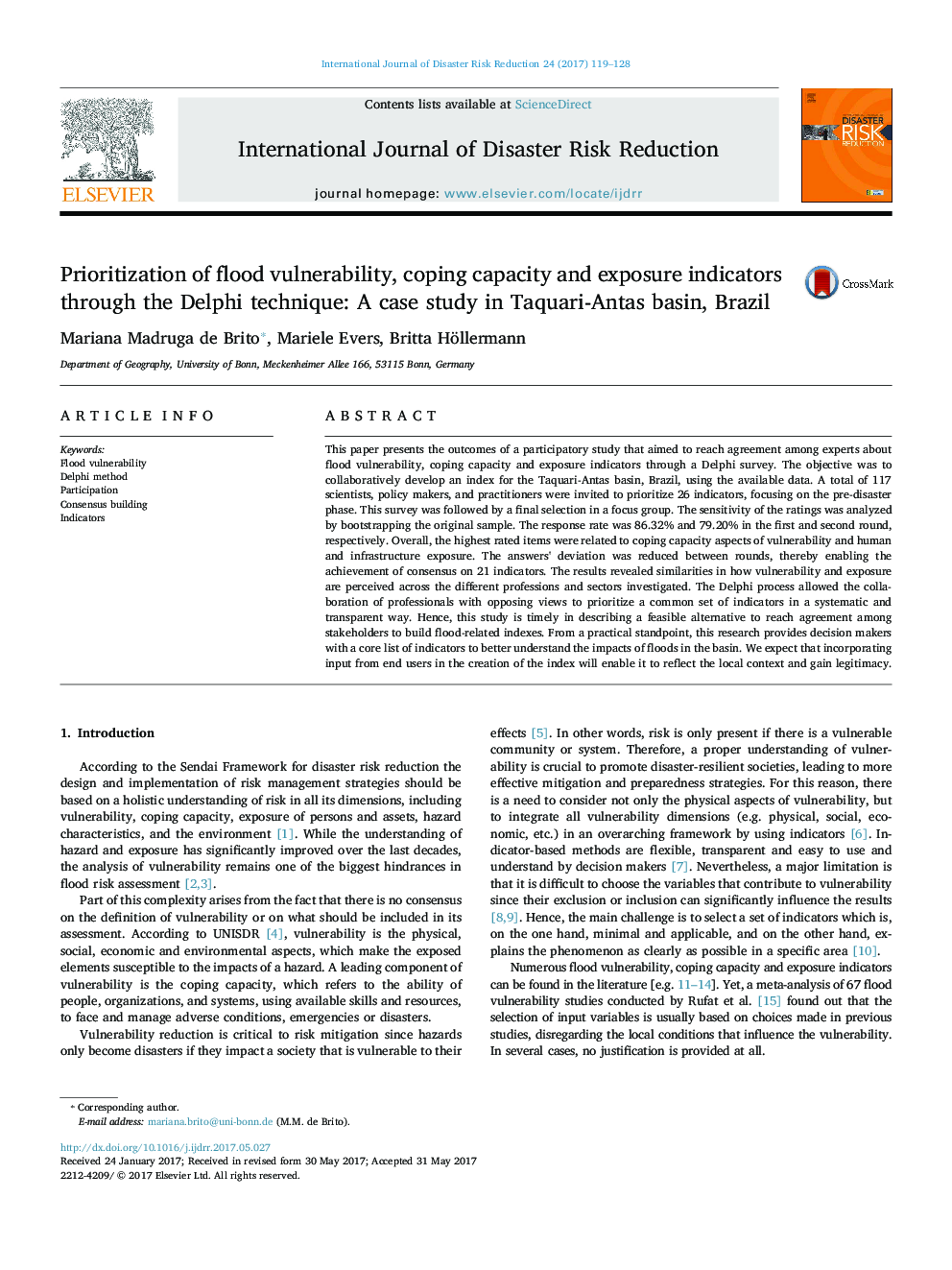| Article ID | Journal | Published Year | Pages | File Type |
|---|---|---|---|---|
| 5116020 | International Journal of Disaster Risk Reduction | 2017 | 10 Pages |
Abstract
This paper presents the outcomes of a participatory study that aimed to reach agreement among experts about flood vulnerability, coping capacity and exposure indicators through a Delphi survey. The objective was to collaboratively develop an index for the Taquari-Antas basin, Brazil, using the available data. A total of 117 scientists, policy makers, and practitioners were invited to prioritize 26 indicators, focusing on the pre-disaster phase. This survey was followed by a final selection in a focus group. The sensitivity of the ratings was analyzed by bootstrapping the original sample. The response rate was 86.32% and 79.20% in the first and second round, respectively. Overall, the highest rated items were related to coping capacity aspects of vulnerability and human and infrastructure exposure. The answers' deviation was reduced between rounds, thereby enabling the achievement of consensus on 21 indicators. The results revealed similarities in how vulnerability and exposure are perceived across the different professions and sectors investigated. The Delphi process allowed the collaboration of professionals with opposing views to prioritize a common set of indicators in a systematic and transparent way. Hence, this study is timely in describing a feasible alternative to reach agreement among stakeholders to build flood-related indexes. From a practical standpoint, this research provides decision makers with a core list of indicators to better understand the impacts of floods in the basin. We expect that incorporating input from end users in the creation of the index will enable it to reflect the local context and gain legitimacy.
Related Topics
Physical Sciences and Engineering
Earth and Planetary Sciences
Geophysics
Authors
Mariana Madruga de Brito, Mariele Evers, Britta Höllermann,
